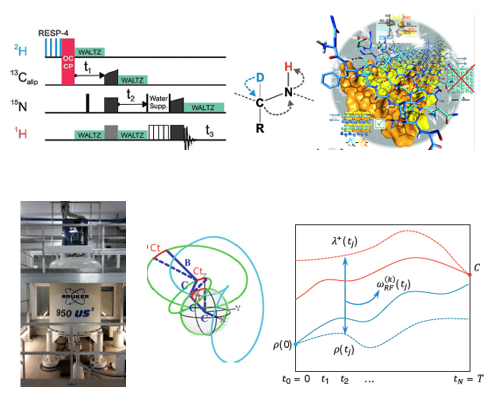Developing advanced magnetic resonance experiments to explore the details of Nature with atomic resolution
Magnetic resonance including pioneering methods like NMR (nuclear magnetic resonance), MRI (magnetic resonance imaging), EPR (electron paramagnetic resonance), and DNP (dynamic nuclear polarization) have formed some of the most fantastic tools ever introduced for analysis of molecular systems. It is a key method in chemistry for identification, materials-, and nanoscience for studying complex interactions, molecular biology for determine high-resolution structures and studying dynamics, and medicine for identifying disease states through imaging.
All this relies on a steady development of new methods addressing new questions – all way from advanced pulse methods to unravel structure/dynamics details in molecular systems on highly specialized instrumentation to mobile instruments used to monitor industrial processes, e.g. in relation to green transition and sustainability.

We work on all these lines – with a central focus on designing new methods to move the fantastic method of magnetic resonance into new heights as a prime tool for science. If we address the figure, this involves highly advanced instrumentation (lower left corner, showing the 950 MHz instrument forming basis for our hosting of the Danish Center for Ultrahigh-Field NMR Spectroscopy. We have many other NMR systems, as well as high-field MRI, low-field benchtop NMR, etc, and are currently building EPR and DNP instrumentation). It involves advanced pulse sequences design to extract detailed information (upper left corner) leading to fancy trajectories of magnetization (lower left corner, second panel) and intensity trajectories from optimal control experiment design (lower right corner) eventually leading to methods and protocols to determine molecular structure and dynamics (upper right corner, amyloid fibril, as relevant for dementia).
Central ingredients are interesting molecular systems, advanced instrumentation, fancy theory and software – please don’t hesitate to contact me if you want to join our projects as student, postdoc etc. at all levels or discuss potential ideas in specific areas.